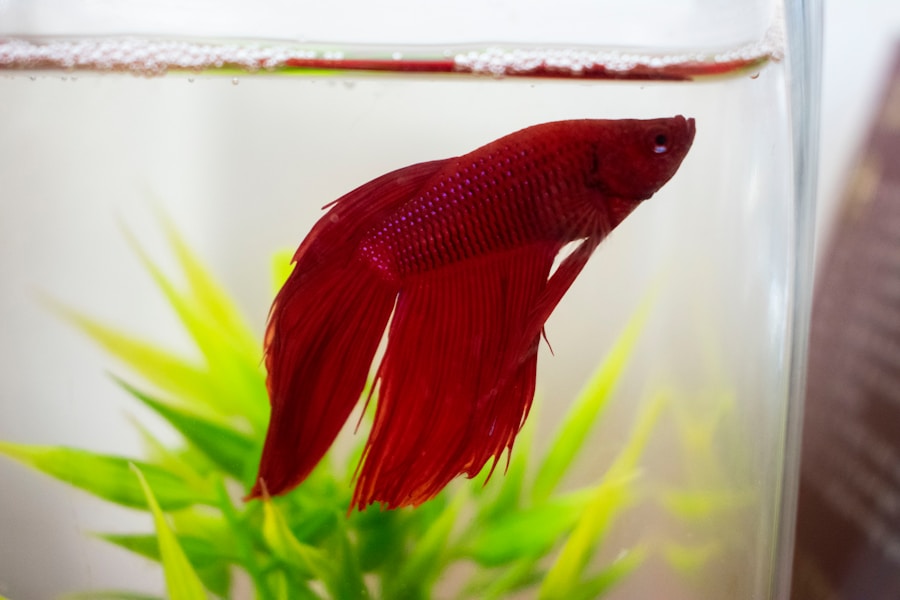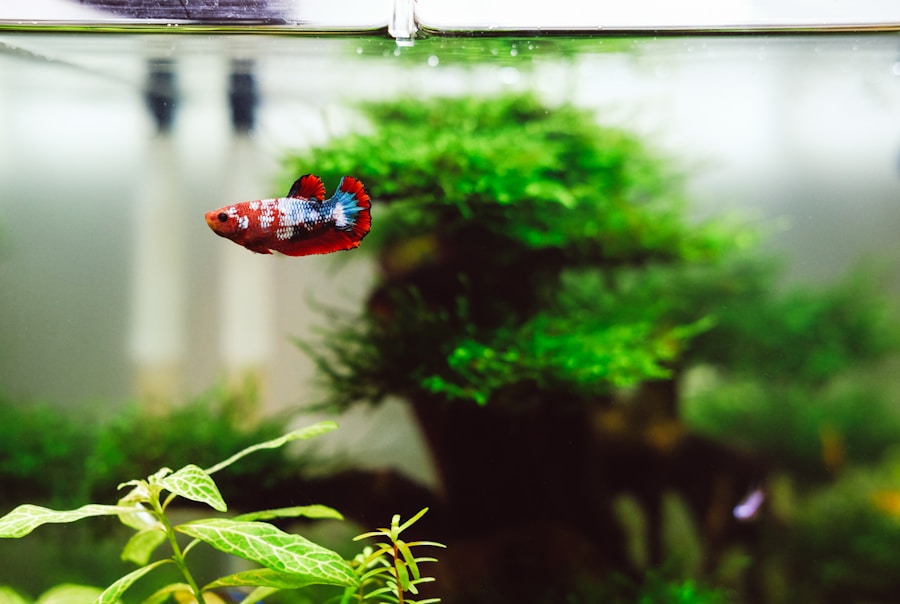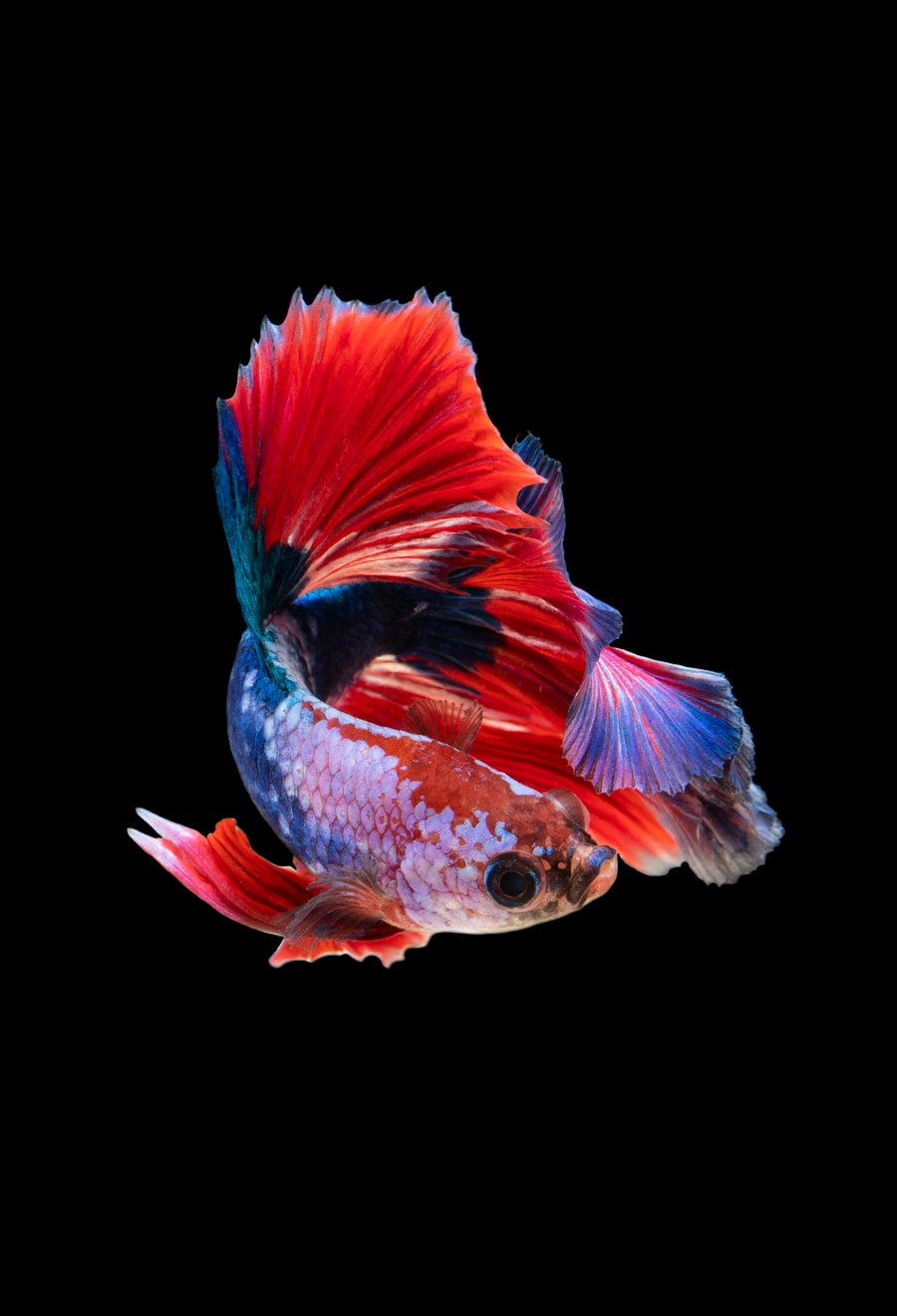
When it comes to caring for your Betta fish, understanding their nutritional needs is crucial for their overall health and well-being. Betta fish, also known as Siamese fighting fish, are carnivorous by nature. In the wild, they primarily feed on insects and small crustaceans, which means their diet should be rich in protein.
This protein is essential for their growth, energy, and vibrant coloration. As a responsible pet owner, you want to ensure that your Betta receives a balanced diet that mimics their natural feeding habits. In addition to protein, Betta fish also require certain vitamins and minerals to thrive.
These nutrients support their immune system, promote healthy growth, and enhance their colors. A well-rounded diet should include not just protein but also fats, carbohydrates, and fiber. It’s important to choose foods that are specifically formulated for Betta fish, as these will contain the right balance of nutrients tailored to their needs.
By understanding what your Betta requires nutritionally, you can make informed choices that will keep your fish happy and healthy.
Key Takeaways
- Betta fish require a diet high in protein and low in carbohydrates, mimicking their natural diet in the wild.
- Live foods such as brine shrimp and bloodworms can be incorporated into a betta fish’s diet to provide essential nutrients and promote natural hunting behaviors.
- High-quality pellets and flakes specifically formulated for betta fish can provide a balanced and convenient diet option.
- Frozen foods like daphnia and mosquito larvae can add variety to a betta fish’s diet and offer additional nutrients.
- Supplementing a betta fish’s diet with fresh vegetables like peas can provide fiber and aid in digestion, but should be given in moderation.
Incorporating Live Foods into the Diet
Benefits of Live Foods
Incorporating live foods into your Betta fish’s meals is an excellent way to provide them with a nutritious diet. Live foods are a great source of protein and stimulate natural hunting behaviors in your fish. You can easily find options like brine shrimp, daphnia, and bloodworms at pet stores or online.
Enhancing Color and Vitality
These foods are packed with essential nutrients that can help enhance your Betta’s color and vitality. When introducing live foods to your Betta’s diet, it’s crucial to do so gradually. Start by offering small amounts to see how your fish reacts.
Important Considerations
Some Bettas may be more enthusiastic about live foods than others, so it’s essential to monitor their behavior. Additionally, ensure that any live food you provide is sourced from reputable suppliers to avoid introducing diseases or parasites into your aquarium.
A Dynamic Feeding Experience
By incorporating live foods into your Betta’s diet, you can create a more dynamic feeding experience that promotes their natural instincts. This can lead to a healthier and happier fish.
Opting for High-Quality Pellets and Flakes

While live foods are an excellent addition to your Betta’s diet, high-quality pellets and flakes should form the foundation of their nutrition. Look for products specifically designed for Betta fish, as these will contain the right balance of protein, fats, and vitamins. High-quality pellets often have a higher protein content than standard fish food, which is essential for your Betta’s health.
The first ingredient should ideally be a high-quality source of protein, such as fish meal or shrimp meal. Avoid products that list fillers like corn or wheat as primary ingredients, as these do not provide the necessary nutrients for your Betta.
Additionally, consider the size of the pellets; they should be small enough for your Betta to consume easily. By opting for high-quality pellets and flakes, you can ensure that your Betta receives a balanced diet that supports their health and vitality.
Adding Variety with Frozen Foods
In addition to live foods and high-quality pellets, frozen foods can also play a significant role in your Betta’s diet. Frozen options like bloodworms, brine shrimp, and mysis shrimp are convenient and nutritious alternatives that can add variety to your fish’s meals. These foods retain their nutritional value during the freezing process, making them an excellent choice for pet owners looking to diversify their Betta’s diet.
When feeding frozen foods to your Betta, it’s essential to thaw them before offering them to your fish. You can do this by placing the frozen food in a small bowl of tank water for a few minutes until it softens. This not only makes it easier for your Betta to eat but also prevents any sudden temperature changes in the tank water.
By incorporating frozen foods into your Betta’s diet, you can provide them with a range of flavors and textures that keep mealtime exciting.
Supplementing with Fresh Vegetables
While Betta fish are primarily carnivorous, supplementing their diet with fresh vegetables can provide additional nutrients and fiber. Vegetables like peas, zucchini, and spinach can be beneficial for your fish’s digestive health. Peas are particularly popular among Betta owners because they help prevent constipation—a common issue in these fish.
To prepare vegetables for your Betta, make sure to cook them lightly and then chop them into small pieces. You can also blanch them briefly in boiling water to soften them up before offering them to your fish. Keep in mind that vegetables should only make up a small portion of your Betta’s overall diet; they should not replace the primary protein sources.
By adding fresh vegetables occasionally, you can enhance your Betta’s diet while promoting healthy digestion.
Avoiding Overfeeding and Maintaining a Balanced Diet

Feeding Guidelines
A good rule of thumb is to feed your Betta two to three small meals per day rather than one large meal. Only offer as much food as they can consume within a few minutes—typically around 2-3 pellets or a small pinch of flakes per feeding. This will help prevent overfeeding and ensure your Betta gets the nutrients they need.
Keep an eye on your Betta’s eating habits and adjust the amount of food accordingly. This will help you strike the right balance and avoid overfeeding.
A Healthy and Active Betta
By maintaining a balanced diet and avoiding overfeeding, you can help ensure that your Betta remains healthy and active. A well-fed Betta is more likely to thrive and live a long, happy life.
Considering the Benefits of Homemade Fish Food
Internal Topics [ https://infos.care ]:
If you’re feeling adventurous and want to take control of your Betta’s diet even further, consider making homemade fish food! This option allows you to customize the ingredients based on your fish’s specific needs while ensuring they receive high-quality nutrition. Homemade fish food can include a mix of proteins like shrimp or fish fillets combined with vegetables and even some vitamins.
To create homemade fish food, you can blend cooked ingredients into a paste and freeze it in small portions for easy feeding later on. Just remember that while homemade food can be nutritious, it’s essential to research recipes carefully to ensure they meet all of your Betta’s dietary requirements. By preparing homemade fish food, you can provide a unique and tailored diet that supports your Betta’s health.
Monitoring the Health and Behavior of Betta Fish
Finally, one of the most important aspects of caring for your Betta fish is monitoring their health and behavior regularly. Pay attention to how they respond to different foods; if you notice any changes in appetite or behavior after introducing new items into their diet, it may indicate an issue with that particular food or an underlying health problem. Look out for signs of stress or illness such as lethargy, discoloration, or unusual swimming patterns.
Keeping a close eye on your Betta will help you catch any potential issues early on so you can address them promptly. Regular water changes and maintaining good water quality are also crucial factors in keeping your Betta healthy. In conclusion, providing proper nutrition for your Betta fish involves understanding their dietary needs and incorporating a variety of food sources into their meals.
From live foods and high-quality pellets to fresh vegetables and homemade options, there are many ways to ensure your Betta receives a balanced diet that promotes health and vitality. By avoiding overfeeding and monitoring their behavior closely, you can create an enriching environment that keeps your Betta happy for years to come!
FAQs
What is the best natural food for betta fish health?
The best natural food for betta fish health includes live or frozen foods such as bloodworms, brine shrimp, daphnia, and mosquito larvae. These foods provide essential nutrients and are closer to the betta fish’s natural diet in the wild.
What are some nutrition tips for betta fish health?
Some nutrition tips for betta fish health include providing a varied diet, avoiding overfeeding, and ensuring that the food is high in protein. It is also important to consider the nutritional content of the food and choose options that are specifically formulated for betta fish.
Can betta fish eat vegetables or fruits?
Betta fish are primarily carnivorous and do not typically eat vegetables or fruits in the wild. While they may nibble on small amounts of blanched vegetables such as zucchini or cucumber, these should not be a primary part of their diet.
How often should betta fish be fed?
Betta fish should be fed small amounts of food 2-3 times per day. It is important not to overfeed them, as this can lead to health issues such as obesity and constipation.
Are there any specific foods to avoid feeding betta fish?
Foods to avoid feeding betta fish include processed or low-quality fish foods, as well as foods that are high in fillers and low in protein. It is also important to avoid feeding betta fish foods that are too large for them to consume, as this can lead to digestive issues.
Recommended Internet Infos:
Care and Use of Siamese Fighting Fish (Betta splendens) for Research
Source: https://pmc.ncbi.nlm.nih.gov/articles/PMC9334006/
Aquaculture Nutrition
Fish Health and Nutrition
Recommended YouTube Videos:
👉 Please visit more Fish Care Infos.








